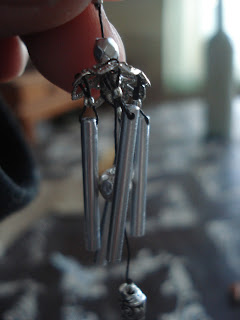Like many incorrigible readers, I often have multiple books going simultaneously. Different genres, lengths, tones for different moods and locations and times. Here are a few of my recent reads:
This YA book by Jennifer Niven left me underwhelmed. I know others have enjoyed it, and it's set to be a movie starring Elle Fanning as Violet, I just didn't fall in love with it like I do with so many other YA books. I don't want to give any spoilers, but it is narrated alternately by Violet and Finch. I liked Violet because her narration was reliable and pretty relatable. I liked Finch because of his humor, but he was an unreliable narrator and even with his first person POV, he didn't seem like a real person. He seemed, well, like a character. The best characters are ones that seem so real to us that we have to remind ourselves they're fictitious, and with Finch I found myself just kind of glossing over his chapters after a while because he wasn't really speaking to me.
I loved this historical fiction work by Christopher Paul Curtis. I was already familiar with his work in Bud, Not Buddy and The Watsons Go to Birmingham and he has a gift for bringing history alive. He doesn't rely on cliches in order to communicate the struggle, pain and sorrow of the Depression; even young readers are aware that during this time in history people were unemployed, standing in lines for food and losing their homes. Those aspects are included, but they're more like part of the background rather than the main focus. His character development of Deza is spot on- she is mature yet precocious, perfectly situating her in the time between child and teenager and in this point in history, when even children were expected to work as hard as they could to support their families. I think the most insightful way Curtis establishes the desperation of this time is the ongoing description of Deza's teeth, which are so neglected and decayed that her own father admits (when he doesn't think Deza is listening) that he turns his head away when she hugs him. The pain he knows she's in from the cavities, and the pain he feels that he's not able to provide proper care for the daughter he loves and truly believes is destined for greatness, is one that speaks out to the reader more than the usual descriptions of the Depression.
This is a book I'm indulging in to satisfy my incredible Full House nerd-dom. It's funny to read about when Dave Coulier's new girlfriend, Alanis Morrisette, visited the show's set, and a little uncomfortable to read the part when she admits she attended the premiere of the Olsen twins' film New York Minute high on meth, but it's more than that. Reading biographies and memoirs is so appealing to us because they provide us a window into another person's experience. And I don't just mean the juicy gossip stuff, like what drugs someone tried or how many people someone slept with. All humans are incredibly complex, with our own fears and insecurities and idiosyncrasies, and we're constantly engaging in a dialogue with ourselves, whether it's something as simple as what should we eat for dinner, or coping with a major loss, but we don't often get to see that. I don't consider what the woman in front of me in the line at the grocery store is thinking about any more than I consider what the driver in the car next to me at a stoplight might be struggling with at that very moment. Getting a glimpse into another human's experience simply reminds us that we are all human.
It's won numerous awards for its discussion of child abuse, but I wasn't impressed with it. It felt like I was reading an after-school special. I didn't feel connected to any of the characters, and the main portion of the story's action seemed over-dramatic and unrealistic.
I read this book in two days. It's more than your typical, melancholy book about teenage death, specifically suicide. There's a mystery in the story that really drove me to read and read and read because I wanted to know the answer. But like life, even when we're presented with an answer, it doesn't always make sense or give us the satisfaction or closure we're craving. That's what made this book relatable. I know that some of our students have been requesting it lately because Forman's other books If I Stay and Where She Went have become quite popular here, but it is a little bit grittier than those books. It involves some discussion of suicide, including suicide 'support' groups which can be found online, and an impressionable reader might be more affected by those kinds of suggestions.
I love Helen Frost's books. Something about letting a story unfold through poetry elevates it, and yet also makes it more accessible since it's shorter and the text is arranged in visually appealing ways. The other Frost books I've read are Keesha's House, Diamond Willow and Hidden, which are all contemporary stories. Salt is a historical fiction book, set in the time immediately preceding the War of 1812. The story is told through the eyes of James, whose family are traders, and Anikwa, a Native American boy belonging to the Miami tribe. Poetry is perfect for telling the story, because since there is something of a language barrier between the boys, they depend on other ways to communicate rather than plain words.
I read this short graphic novel in about an hour. It's a very good illustration of how eating disorders take hold of people, and the disconnect that becomes apparent as they continue to starve themselves in order to feed 'the voice' that is constantly berating them, telling them to try harder, push themselves more, BE BETTER, etc.


















































